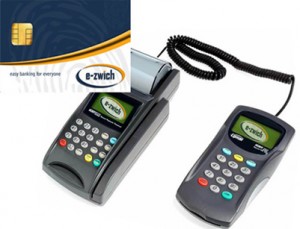e-zwich payment under GSOP increases from GH¢38,000 to GH¢3.8m
 The payment of beneficiaries of the Ghana Social Opportunity Project (GSOP) via e-zwich has seen phenomenal growth, rising from GH¢38,000 in February 2015 to GH¢3.8 million paid in August this year.
The payment of beneficiaries of the Ghana Social Opportunity Project (GSOP) via e-zwich has seen phenomenal growth, rising from GH¢38,000 in February 2015 to GH¢3.8 million paid in August this year.
The volume of e-zwich transactions has also shot up from 503 to 34,169 over the same period. This is contained in a report by Ghana Interbank Payment and Settlement Systems (GhIPSS), operators of e-zwich.
Since GSOP begun using e-zwich in February last year till August this year, a total amount of GH¢20.8 million has been paid through the biometric payment system while the total volume of transactions stands at 181,713.
GSOP is one of the social interventions by government. It is a labour intensive Public Works project, which identifies various projects within rural areas and engages people within those areas to work.
The beneficiaries are paid the daily minimum wage.
It is a World Bank funded project under the Ministry of Local Government and Rural Development. A dedicated team and the various district assemblies manage the daily activities of the project.
The project is currently running in 60 districts in all the10 regions.
The phenomenal growth in the volume and value of the e-zwich transactions by GSOP has been attributed to the benefits that the payment system provides.
The use of e-zwich to pay people engaged under GSOP has ensured that the right beneficiary and the right amount are paid, and paid on time.
It has also provided a transparent audit trail and reduced the possibility of corruption and other malfeasance.
In an interview, the Chief Executive of GhIPSS, Archie Hesse commended GSOP for choosing e-zwich and for the confidence reposed in the payment system.
He encouraged beneficiaries of GSOP and others who receive funds on e-zwich cards to cultivate the habit of using their cards to make payments on hybrid POSes, when they visit shops.
He said the agenda to reduce cash transaction was on course and urged the public to embrace the new trend.
Source: GNA
